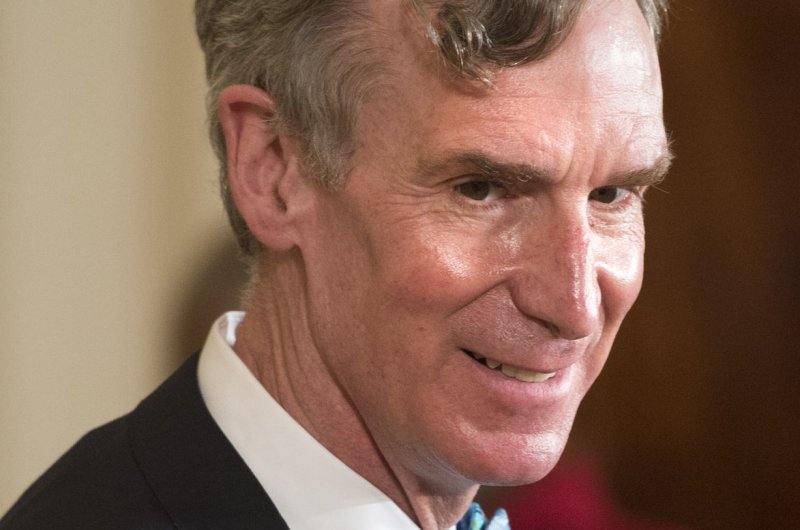Bill Nye wants to stop calling those who deny climate change "skeptics." File Photo by Kevin Dietsch/UPI |
License Photo
WASHINGTON, Dec. 11 (UPI) -- Bill Nye and dozens of other scientists in media and academia have a message: People who refuse to face the reality of climate change are not "skeptics," but "deniers."
Nye and 47 others wrote a letter for the Skeptical Inquirer asking journalists to stop using the term "climate change skeptic," arguing that the term undermines the severity of climate change.
The letter comes after a New York Times article referred to Sen. James Inhofe, R-Okla., as a "prominent skeptic of climate change."
Inhofe, who authored The Greatest Hoax: How the Global Warming Conspiracy Threatens Your Future, has vowed to interrogate EPA Administrator Gina McCarthy over the projections of environmental damage resulting from the Keystone XL pipeline. Environmentalists and many Democrats argue that the pipeline's construction would provide a small number of temporary jobs while doing irreparable damage to the environment.
"Inhofe's belief that global warming is 'the greatest hoax ever perpetrated on the American people' is an extraordinary claim indeed. He has never been able to provide evidence for this vast alleged conspiracy. That alone should disqualify him from using the title 'skeptic,'" the scientists wrote.
Those who signed the letter include David Morrison, director of the Carl Sagan Center for the Study of Life in the Universe at the SETI Institute; Ann Druyan, CEO of Cosmos Studios; Sir Harold Kroto, a Nobel Prize winner in chemistry; and several university professors.
The scientists said they promote scientific skepticism because it is the basis of discovery and accurate research, but insisted those who deny the reality of climate change are, in fact, "deniers" and not "skeptics."
"By perpetrating this misnomer, journalists have granted undeserved credibility to those who reject science and scientific inquiry," they said.
Approval for the Keystone XL pipeline failed to pass the Democrat-controlled Senate, but is expected to be taken up again when Congress returns for the next session, when both chambers will be controlled by Republicans.















